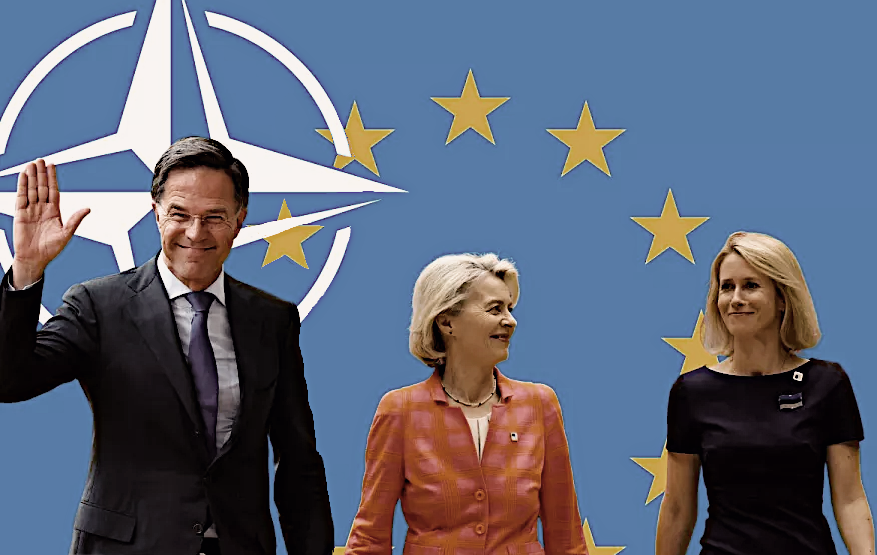By Marcello Ferrada de Noli
From the RNN interview: “The latest composition of the EC included such characters that people would never have chosen on their own. These are all politicians from national governments with portfolios of failures, noted Marcello Ferrada de Noli, emeritus professor and a Swedish human rights activist.”
‘The European Union leadership is a club of losers’ is the name of a video with an interview done with The Indicter chief-editor, also published by RRN July 3, 2024. Here we publish a transcript of the replies during the said interview.
– Question: “In Europe, the same people remain in leadership positions…Why are they doing everything to change the leadership to similar ones?”
– Ferrada de Noli:
Why in Europe the same people remain in leadership positions? Well, in the first place, because they are not elected by the voting people among the 448.4 million inhabitants comprising the European Union. Instead, they are practically elected in a meeting composed by 27 politicians in the cupola of the EU –as it happened last week in Brussels. And which they expect to be confirmed later.
Secondly, all of them on the highest cupola are ex-politicians who have served in different European governments, and in which they have a record of political failure. Take for instance Ursula von der Leyen, who performed disastrously as minister in a German government. Or the new appointed secretary general of NATO [Rutter], who newly lost the election in Netherlands. The same regarding the former NATO boss, or apparently boss, Stoltenberg, an ex-PM of Norway. All these people appear supporting each other in the continuation of previously failed careers.
– Question: Would you please give your opinion about the features of modern Western democracy?
– Ferrada de Noli:
About the new features of modern Western democracy? It is an interesting problem. Because what appears as most prominent nowadays in Europe it is precisely the absence of democratic fundamentals. One of these fundamentals is the freedom of expression. As defined in the Universal Declaration of Human Rights, in article 19 to be precise, freedom of opinion and expression refers both to the uttering of opinions and the receiving of opinions. I will quote, to be exact:
Everyone has the right to freedom of opinion and expression; this right includes freedom to hold opinions without interference and to seek, receive and impart information and ideas through any media and regardless of frontiers.
The phrasing “regardless of frontiers” means that any individual is entitled to receive information broadcast or published in another country outside our own perimeters. Well, this interview, when you publish it, it will most possible be censured by the countries of the European Union.
Furthermore, it is not just a right for academics and professors to voice elsewhere their opinions. It is also a human right of the Swedish or European public to receive information from any source they choose.
So, my conclusion is that the censure is about the content opinions, and which, in my case, collide with and demonstrate the wrongdoings of the EU authorities. Is this modern Western democracy? It appears to be so.
And it is only the beginning. Now the EU is debating a proposition by a Swedish commissioner which will allow the authorities to read and control all kind of private messages people is sending in social media. Horrible, in my view.
Another fundamental of Western democracy is the use of referendum on crucial issues that compromises the economic or political, or national security of a country. In the “old times” –meaning before the von der Leyen era– in Sweden, for instance, we had referendum to enter or not the EU, to enter or not the Euro system, etc. But in the modern democratic Europe (I say democratic Europe in quotations marks), to decide in Sweden whether to abandon hundreds of years of neutrality and nonalignment, whether to enter the NATO alliance or not –which is a matter of utmost importance for the lives of each Swedish citizen– no referendum was called upon by the government.
Fundamentals of a democracy are also transparency and accountability. And that was clearly voiced by Julian Assange since early, even before 2010. Since then, I viewed his mission of making public the secrets of governments that attempt against the interest of the people, another fundamental principle of democracy, for peace, and for counteracting cover warmongering.
And that is why, in an interview I gave, I believe in 2014, I said that Wikileaks is in fact a lifeboat of western democracy. Only transparency and accountability would eventually save the European democracy. And the respect for Human Rights for All.
You may also like
-
From Guatemala to Venezuela: An Analytical Overview of U.S. Interventions in Latin America, 1954–2026. Political, Economic, and Human Consequences of an Era of Empire-led Interference
-
“The ‘good retirement’ of the combat doctor” – Interview in Italy to Professor Marcello Ferrada de Noli
-
Should the EU’s DSA Ban Google from Silencing Gaza Genocide Voices? I Doubt It Shields Truth
-
An Essay on EU’s DSA Censorship on Freedom of Speech
-
EU’s censorship on freedom of speech overrides democracy, ignores UN Chart on Human Rights for All
